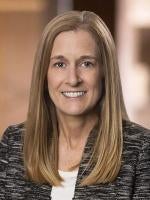In OIG Advisory Opinion 12-06, the OIG determined that two proposed arrangements between an anesthesia services provider (the “Requestor”) and professional corporations (“PCs”) or limited liability companies (“LLCs”) that own ambulatory surgical centers (“ASCs”) would potentially violate the federal Anti-Kickback Statute (“AKS”) and thus would be subject to enforcement and administrative sanctions. The OIG emphasized that it has “long been concerned about the potential for investments in ASCs to serve as vehicles to reward referrals.”
The Requestor is the exclusive provider of anesthesia services to several ASCs owned and operated by the PCs or LLCs. The Requestor believes that the ASCs were formed and operate in compliance with the ASC safe harbor to the AKS (42 C.F.R. § 1001.952(r)). Under the existing relationship, the ASCs bill and receive payment from Medicare both for surgical procedures and integral ancillary items and services. The Requestor bills Medicare and patients for professional services, which are not included in the payment to ASCs. The ASCs’ physician-owners also bill for their professional services, and charge a “facility fee” for the materials and ancillary staff required to operate the ASCs.
Proposed Arrangement A
Under Proposed Arrangement A, the Requestor would continue to serve as the ASCs’ exclusive provider of anesthesia services. However, the Requestor would begin paying the ASCs a per-patient fee for “Management Services,” which the Requestor represented would be paid at fair market value. Federal health care program patients would be “carved out,” which means that the fee would not apply to such patients. The ASCs would continue to collect a facility fee from Medicare and private payors.
Based on the facts presented, the OIG decided that Proposed Arrangement A presents risk under the AKS because the Requestor could be paying the Management Services fees to induce the ASCs to refer all of patients, including federal health care program patients, to the Requestor. Even if the Requestor does not pay fees associated with federal health care program patients, the carve out would not reduce the risk. Indeed, the OIG noted its “long-standing concern” that payments for non-federal health care program business may disguise remuneration for federal health care program business.
Second, the OIG determined that the Management Services covered by the fee are included in the facility fee paid by Medicare. The ACSs therefore would be paid twice for the same services. Thus, the Management Services fees paid by the Requestor could unduly influence the ASCs to select the Requestor as their exclusive provider of anesthesia services.
Proposed Arrangement B
Under Proposed Arrangement B, the ASCs’ physician-owners would establish subsidiaries wholly owned by the PCs, LLCs, or ASCs (“Subsidiaries”) that would exclusively provide anesthesia-related services to the ASCs and then bill for those services. The Requestor would serve as an independent contractor to the ASCs and would be paid a fee for its services.
Although the ASC, employee, and personal services and management contracts safe harbors to the AKS might apply to Proposed Arrangement B, the OIG determined that no safe harbor would protect the remuneration that the Subsidiaries would distribute to the ASCs’ physician-owners. The remuneration would be prohibited under the AKS if one purpose of the remuneration is to generate or reward referrals for anesthesia services.
In particular, the OIG concluded that the Subsidiaries’ income generated under Proposed Arrangement B could not qualify for protection under the ASC safe harbor. The ASC safe harbor protects returns on investments where the investment entity itself is a Medicare-certified ASC, meaning that it operates exclusively for the purpose of providing surgical services to patients. Because the Subsidiaries would provide anesthesia services, they could not qualify as ASCs for purposes of the ASC safe harbor.
Although lack of compliance with a safe harbor would not necessarily result in a per se violation of the AKS, the OIG concluded that Proposed Arrangement B would pose more than a minimal risk of fraud and abuse. The OIG noted that arrangements (such as joint ventures) between parties who can refer business (i.e., the ACSs’ physician-owners), and those furnishing Medicare-payable items or services (i.e., the Requestor) are suspect. In particular, the OIG is concerned about arrangements where much of the joint venture’s business is derived from one or more of the joint venturers (see the OIG’s 1989 Special Fraud Alert on Joint Venture Arrangements and 2003 Special Advisory Bulletin on Contractual Joint Ventures). The OIG determined that many of the elements of suspect joint venture arrangements identified in its 2003 Special Advisory Bulletin were present in Proposed Arrangement B, including the fact that:
- the ASCs’ physician-owners would be expanding into a related line of business— anesthesia services—that would be wholly dependent on the ASCs’ referrals;
- the ASCs’ physician-owners would not actually operate the Subsidiaries, but would contract out the operations exclusively to the Requestor; and
- the ASCs’ physician-owners’ would have minimal business risk because they would control the amount of business they would refer to the Subsidiaries.
In its submission to the OIG, the Requestor represented that it was “under pressure” to enter into Proposed Arrangements A or B to “compete with other anesthesia groups in its area that are engaging in similar practices.” Parties currently engaged in or considering similar arrangements should carefully review this and other relevant OIG guidance and consider the steps necessary to ensure compliance with the AKS.




 />i
/>i

